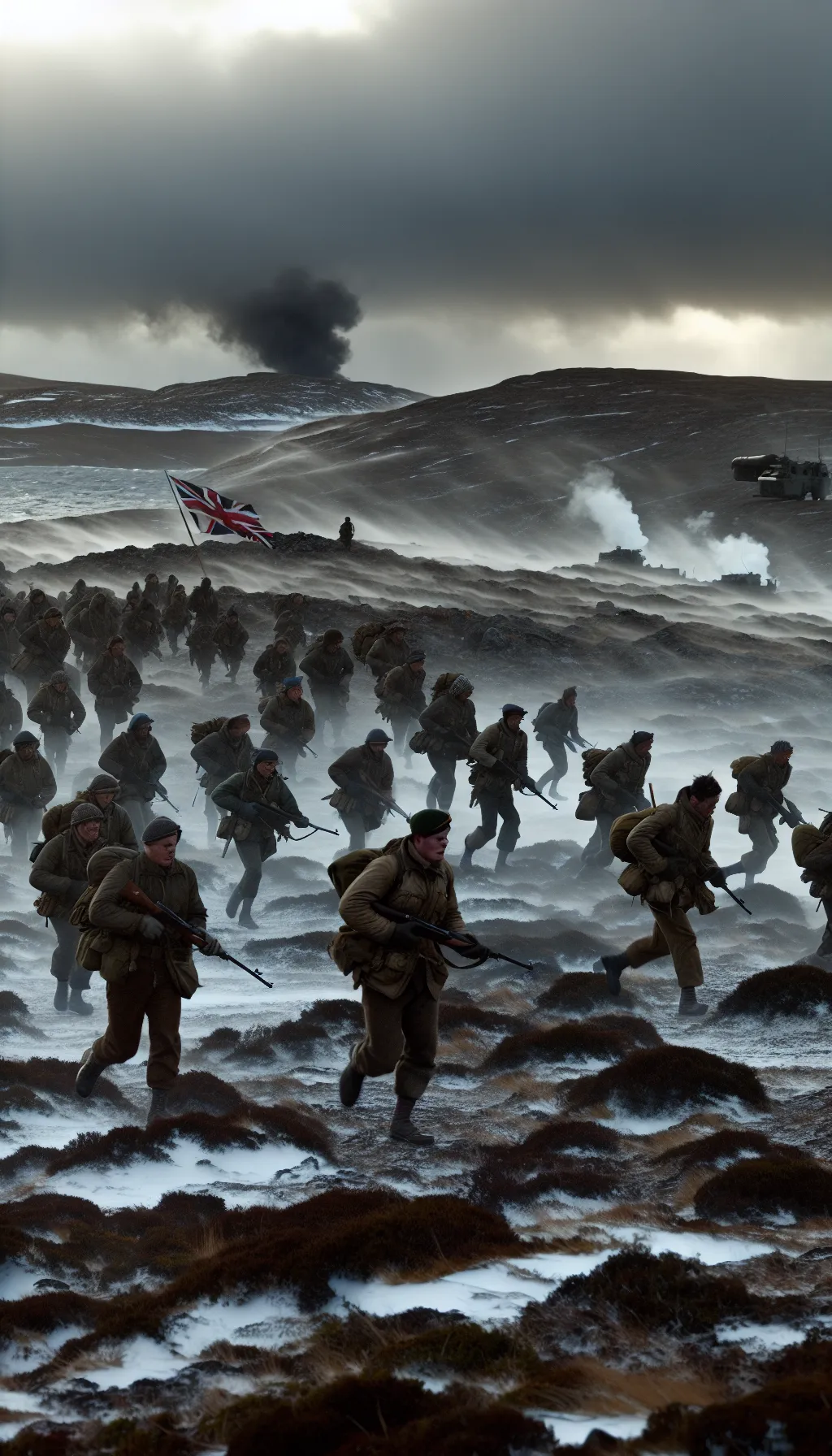Argentina – The Final Surrender: The End of the Falklands War - June 14, 1982
TLDR;
- Event: The Falklands War concluded on June 14, 1982, with the surrender of Argentine forces in Port Stanley, marking a decisive British victory after ten weeks of conflict.
- Key Factors: British forces’ superior training, logistics, and control of the seas overcame Argentine numerical superiority, leading to the encirclement and eventual surrender of Port Stanley.
- Impact: The war’s end significantly boosted Margaret Thatcher’s government in the UK and contributed to the downfall of Argentina’s military junta.
- Legacy: The conflict left deep scars on both nations, reshaping their political landscapes and highlighting the human cost of war over remote territories.
–
Story
The cold winds of the South Atlantic whipped across the barren landscape of the Falkland Islands as British troops, weary yet resolute, advanced towards the Argentine positions. It was June 14, 1982, and the world held its breath, waiting for the final act of a conflict that had gripped the globe for ten tense weeks.

The Falklands War, a bitter struggle over a remote archipelago, had seen both nations pour their resources and resolve into a battle that was as much about national pride as it was about territory. For Argentina, the islands represented a long-standing claim, a piece of their national identity. For Britain, it was a matter of defending its citizens and sovereignty.
As the British forces closed in on the Argentine stronghold in Port Stanley, the tension was palpable. The Argentine troops, while numerically superior, were outmaneuvered and faced the inevitable. The British had executed a series of daring amphibious landings and grueling marches across the islands, overcoming harsh weather and fierce resistance, leveraging their superior training, logistics, and control of the seas.
The turning point came with the encirclement of Port Stanley. The British forces, led by Major General Jeremy Moore, had effectively cut off the Argentine supply lines and surrounded the town. With resupply nearly impossible and morale collapsing among Argentine forces, General Mario Menéndez recognized further resistance was futile. On that fateful day, Menéndez made the decision to surrender. The white flag was raised, and the guns fell silent. The war was over.
The British troops entered Port Stanley to a reception marked by the jubilant cheers of Falkland Islanders waving Union Jacks, even as the exhausted Argentine POWs and the British awareness of the war’s costs lent a somber tone to the victory. The end of the Falklands War marked a significant moment in history, reshaping the political landscape in both Argentina and the United Kingdom. It bolstered Thatcher’s government in the UK while accelerating the fall of Argentina’s military junta. It was a conflict that left scars, both physical and emotional, on all who were involved.
–
| Would a different strategy have changed the outcome of the Falklands War? |